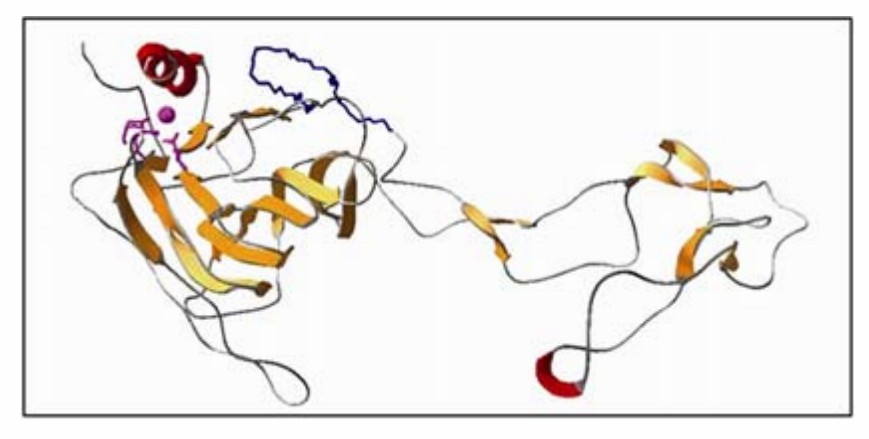Calreticulin (CRT) is a Ca2+-binding multifunctional protein highly conserved in animals and plants. In Caenorhabditis elegans, CRT is required for stress response and fertility. In plant nematodes, esophageal secretions, also called stylet secretions, are produced by oesophageal subventral and dorsal glands cells and are secreted through the stylet during parasitism. These stylet secretions are thought to play a key role in the overall parasitic process. In addition, calreticulin plays an important role in nematode parasitism, development, and reproduction and can reduce plant immunity.
Lifeasible is committed to analyzing the function of calreticulin in plant nematodes for scientific purposes. Our experienced scientists and technicians can provide comprehensive customized services for our clients worldwide. With novel strategies and proprietary features of our platform, we can adjust to meet the needs of each client.
 Fig.1 Predicted three-dimensional structure of Mi-CRT and location of the Mi-CRT-specific peptide. (Jaubert S, et al., 2005)
Fig.1 Predicted three-dimensional structure of Mi-CRT and location of the Mi-CRT-specific peptide. (Jaubert S, et al., 2005)
Lifeasible is dedicated to bringing decades of valuable experience to help our clients. Our customers will work with our professional teams who can totally understand and have conquered various challenges. If you are interested in our services or have any questions, please feel free to contact us or make an online inquiry.
Reference
Lifeasible has established a one-stop service platform for plants. In addition to obtaining customized solutions for plant genetic engineering, customers can also conduct follow-up analysis and research on plants through our analysis platform. The analytical services we provide include but are not limited to the following:
Get Latest Lifeasible News and Updates Directly to Your Inbox
Adaptive Evolutionary Mechanism of Plants
February 28, 2025
Unraveling Cotton Development: Insights from Multi-Omics Studies
February 27, 2025